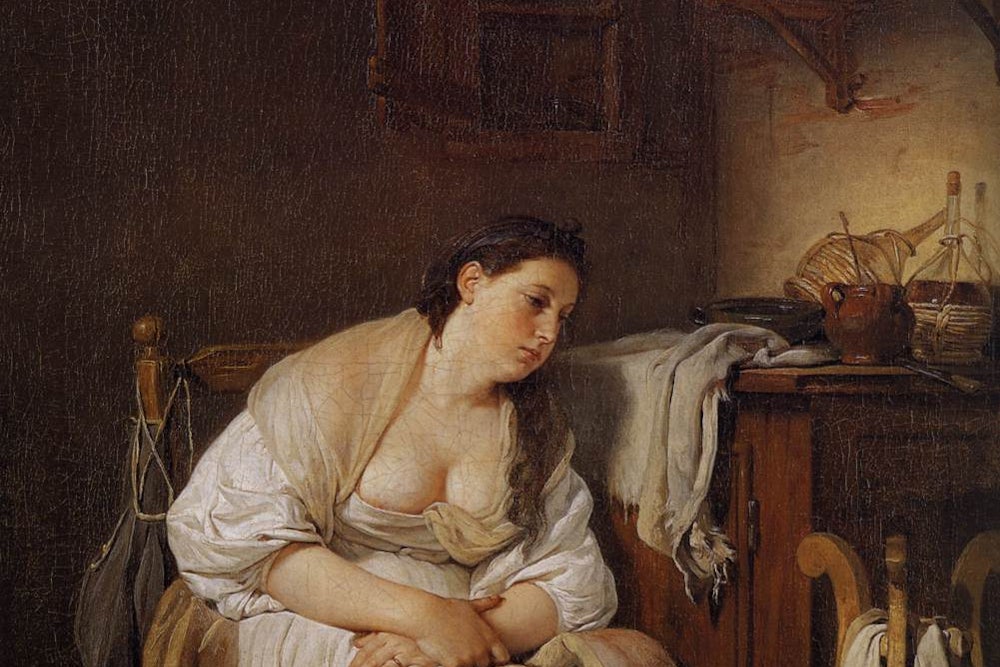In the New Republic, Hannah Rosefield writes about a new book on a universal and curiously malleable condition: exhaustion. Exhaustion: A History by Anna Katharina Schaffner traces the different physical symptoms and cultural significations associated with exhaustion from antiquity to the present day. In Rosefield’s words, exhaustion has been “a floating symptom” throughout the ages, identified with everything from religious impiety to excessive masturbation. Today, in our internet-addled age where people boast of being hyper-busy, exhausted has turned into a badge of honor. Read an excerpt from Rosefield’s piece below, or the full text here:
Sometime in the eighteenth century, doctors and philosophers stopped blaming exhaustion on the weakness of the individual and started blaming it on changes in society. Ever since, exhaustion has been associated with the demands of modern life. Those who fret about exhaustion epidemics are usually cultural conservatives, calling for a return to older, slower, sometimes more godly ways to cure the disease they so readily diagnose. But Schaffner points out that many critics, even as they call for a cure, frame exhaustion as a mark of distinction. This idea dates back at least to Aristotle. “Why is it that all men who have become outstanding in philosophy, statesmanship, poetry or the arts are melancholic?” he wonders in Problemata.
The American neurologist George M. Beard, neurasthenia’s foremost theorist, associated the disease with the middle and upper classes, in 1881 describing the neurasthenic type as having “fine, soft hair, delicate skin, nicely chiseled features, small bones… It is the organization of the civilized, refined and educated, rather than of the barbarous and low-born and untrained”. Small wonder that neurasthenia became such a topic of fascination, promising superiority to those who could detect it in themselves. Doctors, meanwhile, could flatter their patients as they treated them.
Today, exhaustion still hints at status, but of a different sort. To say that you’re exhausted is to telegraph that you’re important, in demand, and successful. It’s akin to the humblebrag of ruefully describing yourself as “so busy”—naturally, since exhaustion follows from busyness. In Schaffner’s telling, the associations of exhaustion with prestige have crystallized in the form of burnout. First used in the 1970s to describe exhaustion suffered by workers in the social sector, “burnout” was characterized by increased cynicism and apathy, and a decreased sense of personal accomplishment. Since then, its application has widened to include all worn down, overburdened workers, especially in Germany, Sweden and the Netherlands, where burnout is a subject of regular media debate. Burnout, caused by workplace conditions rather than by a worker’s mental and physical composition, is depression’s more palatable, more prestigious cousin. As the German journalist Sebastian Beck puts it: “Only losers become depressive. Burnout is a diagnosis for winners, or, more specifically: for former winners.”
Image via the New Republic.
